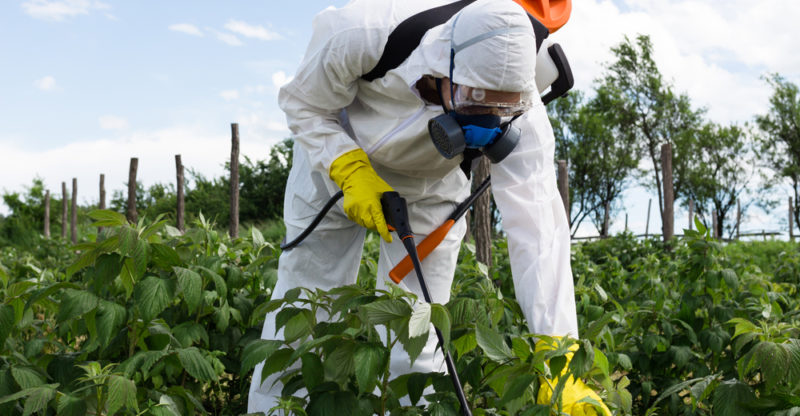Farmers fearing toxic pesticide exposure fight for organic agriculture
Many people choose organic food in order to protect themselves and their families from exposure to pesticides. But choosing organic also means helping to create a healthier food system for everyone, from farm to table. Far too often, discussions about pesticides in the food system exclude the men, women and children who plant, tend and harvest our food.
The millions of farmworkers who are the backbone of our food system are routinely exposed to high levels of toxic pesticides in the fields where they work and in the communities where they live. They can be exposed at levels hundreds of times greater than consumers’ exposures to pesticides.
And because farmworkers and their families typically can’t afford to buy organic food, they suffer the added burden of being exposed to pesticides at work, in their environment and from their diets. Removing pesticides from our food system will significantly improve the health of farmworkers and rural communities.
A new peer-reviewed study published in Environmental Research shows how much of a positive impact eating organic food can have on the body. It inspires us to ask — how do we create a food system where organic is for all?
Following four diverse American families before and after they went on an all-organic diet, researchers found that the levels of pesticides in people’s bodies decreased dramatically after just one week of consuming organic foods and beverages.
After one week on an organic diet, levels of detected pesticides dropped an average of 60 percent with a range of 37 to 95 percent depending on the compound.
In the families that were studied, levels of chlorpyrifos, a widely used and highly neurotoxic pesticide, fell by 61 percent in one week. Government scientists have recommended banning chlorpyrifos because of its links to increased rates of autism, neurodevelopmental problems and reduced IQ in children. But the Trump administration defied its own scientists and rejected a ban in 2017, and has appealed a 2018 federal court order to enact the ban. In the wake of inaction from this administration, Hawaii passed the first state-level ban in 2018 and Rep. Nydia Velázquez introduced a federal bill to ban this dangerous pesticide.
Research shows that the risks of chlorpyrifos exposure are highest for the children of farmworkers and for children who are born and raised near fields where this and other organophosphate pesticides are sprayed.
Chlorpyrifos is just one of the many toxic pesticides farmworkers and their families are routinely exposed to. And as a result, agricultural workers suffer from higher rates of a range of serious health problems including acute poisonings, birth defects, Parkinson’s and other neurodegenerative diseases, infertility and problems linked to hormone disruption, respiratory diseases like bronchitis and asthma, and many cancers, including leukemia, breast, brain, lung, pancreatic and prostate cancers.
Little is being done to protect farmworkers from pesticide exposure. They are excluded from many U.S. labor laws, and worker protection laws do not focus on reducing use of toxic pesticides. Organizations like ours, Farmworker Justice and Farmworker Association of Florida, are leading the fight to improve workplace safety and training for farmworkers, eliminate the most toxic pesticides from use in agriculture and increase knowledge of the harmful effects of pesticide exposure on farmworkers and farming communities.
At the same time, farmworkers are helping to lead the fight for organic agriculture because they know how dangerous our current system is. Right now, farming with toxic pesticides is the norm. But, for the health of all people from farm to table, we need to create a food system where organic is for all. The solution is here — we just have to grow it.

